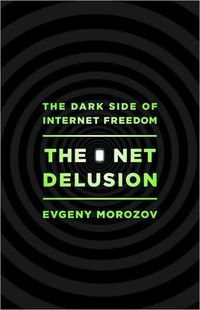

Purchase
The Dark Side of Internet Freedom
Public Affairs
January 2011
On Sale: January 4, 2011
432 pages
ISBN: 1586488740
EAN: 9781586488741
Hardcover
Add to Wish List
Non-Fiction
“The revolution will be Twittered!” declared journalist
Andrew Sullivan after protests erupted in Iran in June 2009.
Yet for all the talk about the democratizing power of the
Internet, regimes in Iran and China are as stable and
repressive as ever. In fact, authoritarian governments are
effectively using the Internet to suppress free speech, hone
their surveillance techniques, disseminate cutting-edge
propaganda, and pacify their populations with digital
entertainment. Could the recent Western obsession with
promoting democracy by digital means backfire?
In this spirited book, journalist and social commentator
Evgeny Morozov shows that by falling for the supposedly
democratizing nature of the Internet, Western do-gooders may
have missed how it also entrenches dictators, threatens
dissidents, and makes it harder—not easier—to promote
democracy. Buzzwords like “21st-century statecraft” sound
good in PowerPoint presentations, but the reality is that
“digital diplomacy” requires just as much oversight and
consideration as any other kind of diplomacy.
Marshaling compelling evidence, Morozov shows why we must
stop thinking of the Internet and social media as inherently
liberating and why ambitious and seemingly noble initiatives
like the promotion of “Internet freedom” might have
disastrous implications for the future of democracy as a whole.
Comments
No comments posted.
Registered users may leave comments.
Log in or register now!
| 


 © 2003-2025 off-the-edge.net
all rights reserved Privacy Policy
© 2003-2025 off-the-edge.net
all rights reserved Privacy Policy